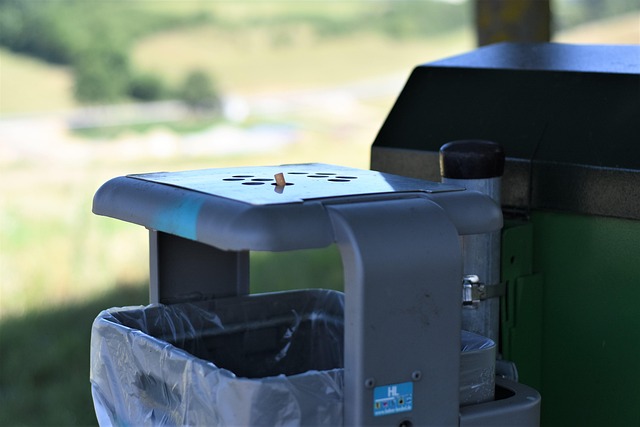Translating UK humor and satire requires more than literal interpretation; it demands a deep understanding of cultural nuances and comedic styles specific to Britain. Professional translation services specializing in this domain employ fluent linguists who grasp both target languages and British culture, ensuring the preservation of essential elements like dry wit, absurdity, and satirical commentary. This meticulous approach aims to maintain the unique "flavor" of UK English, adapt to regional preferences, and avoid offense or misinterpretation, ultimately connecting with global audiences through effective localization of UK humor and satire pieces.
In today’s globalized world, tailoring translations to regional preferences is crucial for effective communication. This article delves into the art of adapting content for British audiences, exploring cultural nuances that underpin UK humor and satire. From understanding taboos to navigating local lifestyles, we dissect best practices in text adaptation. Discover how translation services can build trust with UK clients by preserving humor while catering to specific needs, leveraging tools and technologies, and measuring success through cultural impact.
- Understanding Cultural Nuances: The Cornerstone of Accurate Translation
- UK Humor and Satire: A Delicate Balance Between Translation and Preservation
- Regional Preferences: Beyond Language, Into Lifestyle and Humor
- Adapting Text for British Audiences: Do's and Don'ts
- The Art of Localizing Content: A Case Study on UK Media
- Cultural Context in Translation: Navigating Taboos and Insensitivities
- Satire and Parody: Can They Be Effectively Translated?
- Building Trust with UK Clients: Tailoring Services to Their Needs
- Tools and Technologies for Regionalized Translation
- Measuring Success: Evaluating the Impact of Cultural Adaptation
Understanding Cultural Nuances: The Cornerstone of Accurate Translation

Understanding cultural nuances is paramount in the field of translation, especially when adapting content for specific regions. When it comes to translating UK humor and satire pieces, this becomes even more intricate. What might be considered humorous or ironic in one culture could have a completely different impact or even fall flat entirely in another. For example, British comedy often relies on subtle wordplay, puns, and unique cultural references that may not translate well across languages without careful consideration.
Translation services specializing in this domain must go beyond literal interpretation to grasp the essence of the humor. They should employ translators who not only speak the target language fluently but also have a deep understanding of the cultural nuances and local humor. This ensures that the translated piece retains its comedic value, maintaining the original intent while resonating with the intended regional audience.
UK Humor and Satire: A Delicate Balance Between Translation and Preservation

When translating UK humor and satire into other languages, a delicate balance must be struck between accurately conveying the original meaning and preserving the nuances that make these pieces so enjoyable to British audiences. Humor, by its very nature, is often context-dependent, relying on cultural references, wordplay, and subtle innuendos that may not translate well. For instance, a pun that plays on a regional dialect or a specific British custom could lose its impact or even be misunderstood entirely.
Translation services specializing in UK humor and satire must therefore employ skilled linguists who not only command the target languages but also have a deep understanding of British culture and current affairs. This expertise ensures that the essence of the humor—be it dry wit, absurdity, or satirical commentary on societal issues—is captured effectively, allowing readers from other countries to appreciate these pieces as intended. The goal is to maintain the original’s comedic effect while adapting it for a global audience, demonstrating that high-quality translation services can enhance cultural exchange by preserving and sharing regional humor and satire.
Regional Preferences: Beyond Language, Into Lifestyle and Humor

When tailoring translations for regional preferences, it’s crucial to go beyond simply translating words. The UK, known for its unique humor and satire pieces, offers a fascinating example. Translators must understand that humor is deeply tied to cultural nuances and lifestyle. What might be considered witty in one region could fall flat or, worse, offend others due to differing social norms and comedic styles.
For instance, UK-style humor often relies on dry wit, subtle sarcasm, and playful wordplay—all elements that may not translate directly to other languages and cultures. Professional translation services specializing in the UK market should therefore employ native speakers who grasp these subtleties. They should also stay abreast of local trends and references to ensure the translated content resonates with the intended audience, whether it’s for marketing materials, entertainment, or any other context that requires a touch of UK humor and satire pieces.
Adapting Text for British Audiences: Do's and Don'ts

When adapting text for British audiences, understanding local humor and cultural nuances is key. The UK has a rich tradition of humor and satire, often with subtle references that may not translate well internationally. For example, puns and wordplay common in British English might go unnoticed or even be misinterpreted abroad. Therefore, translation services catering to the UK market should focus on preserving this unique flavor.
Do emphasize local idioms and cultural references in humorous pieces. A good translator should know when to insert a familiar British phrase for maximum effect. However, don’t overdo it. Avoid translating word-for-word, as this can lead to awkward phrasing or loss of intent. Instead, aim to capture the essence of the original text while making it appealing to UK audiences. Remember, UK humor and satire pieces often rely on a certain level of ambiguity, so try to maintain that subtle edge in your translations.
The Art of Localizing Content: A Case Study on UK Media

In the realm of translation services, understanding regional nuances is paramount, especially when adapting content for diverse audiences. A fascinating case in point is the localization of UK media, particularly humor and satire pieces. The UK boasts a rich comedic tradition, with its unique brand of wit and sarcasm being a significant cultural export. When translating such content, it’s not just about word-for-word equivalency; it’s about capturing the essence of British humor across borders.
Translation services for UK media often involve more than language conversion. They require translators who not only grasp the subtle differences in humor but also have a keen sense of cultural context. For instance, a play on words or a sarcastic remark that resonates with Britons might need adjustments to be effective in other countries, considering varying cultural references and comedic timing. This meticulous process ensures that UK humor and satire pieces maintain their impact and appeal when presented to international audiences, showcasing the art of localization at its finest.
Cultural Context in Translation: Navigating Taboos and Insensitivities

When translating content, especially humor and satire pieces, into different regions, it’s crucial to understand that what’s considered funny or acceptable can vary greatly across cultures. What might be a light-hearted joke in the UK could inadvertently offend another culture due to taboos or sensitivities. For instance, UK humor often relies on subtle irony and wordplay, which may not land as intended if not accurately translated. Translation services specializing in this field should employ linguists who are not only fluent but also culturally sensitive.
Navigating these nuances requires a deep understanding of the target audience’s values and beliefs. This is particularly important when dealing with UK humor and satire pieces, known for their unique brand of wit and social commentary. Professional translation services must ensure that the essence of the original piece—its tone, timing, and cultural references—is preserved while adapting it to resonate with local audiences. This careful navigation ensures that translated content not only communicates the intended message but also avoids unintentionally causing offense or misinterpreting regional humor standards.
Satire and Parody: Can They Be Effectively Translated?

The art of translation is a delicate balance, especially when venturing into the realm of humor and satire. When it comes to UK humor and satire pieces, understanding regional nuances is crucial. What works in one culture might not land with the same effect elsewhere. This is where professional translation services come into play, ensuring that the essence of the original piece is preserved while adapting to the target audience’s preferences.
Satire and parody often rely on cultural references, wordplay, and social commentary that are uniquely tied to a specific region or society. Translators must navigate these challenges by not only rendering the words accurately but also finding equivalent expressions that resonate with the intended audience. A skilled translator can adapt the humor, ensuring it remains witty and relevant, while avoiding potential pitfalls of losing the original intent and impact.
Building Trust with UK Clients: Tailoring Services to Their Needs

When offering translation services for UK clients, understanding their cultural nuances is key to building trust. The UK market, with its diverse regions and strong sense of local identity, demands a tailored approach. For instance, translating humor and satire pieces requires a fine grasp of British wit and wordplay. What works in one region may fall flat in another, so adapting content to resonate with UK audiences is essential.
Failing to consider these regional preferences can result in mistranslations that offend or confuse readers. By contrast, successful adaptation showcases respect for the target audience and ensures your translation services are well-received. This level of customization builds a solid foundation of trust between the translator and their clients, fostering long-term professional relationships.
Tools and Technologies for Regionalized Translation

In today’s globalized world, translation services are no longer one-size-fits-all. Tailoring translations to regional preferences is crucial for connecting with diverse audiences effectively. Tools and technologies play a pivotal role in this process. Advanced machine translation (MT) platforms like Google Translate and DeepL offer excellent starting points, but they often require human touch-ups due to their limitations in capturing local nuances and humor, especially in the UK where subtle comedic timing and satire are integral parts of writing.
Professional translation services that specialize in regionalization employ a combination of human expertise and automated tools. These services use term bases, glossaries, and style guides specific to different regions to ensure consistency and accuracy. For UK Humor and Satire Pieces, specialized translators who understand British humor and cultural references are essential. They can refine machine translations, ensuring the integrity of comedic timing and satirical undertones, making content not just translated but truly localised for its target audience.
Measuring Success: Evaluating the Impact of Cultural Adaptation

Measuring success in translation goes beyond simple word-for-word accuracy, especially when adapting content for specific regions like the UK with its unique cultural nuances. For humor and satire pieces, this becomes even more critical. A successful translation should not only convey the original meaning but also capture—or even enhance—the intended comedic or satirical effect. This involves understanding the cultural context, including regional in-jokes, references, and slang, to ensure the translated piece resonates with UK audiences.
Translation services that specialize in UK humor and satire pieces employ various metrics to evaluate their impact. These might include reader engagement data, such as shareability, click-through rates, and user comments, which can provide insights into how well the adapted content connects with its target audience. Additionally, feedback from native speakers or cultural experts can be invaluable in refining translations, ensuring they land with the intended humor and avoid potential cultural misfires.
In today’s globalized world, understanding cultural nuances is paramount for effective communication. When it comes to translating humor and satire, especially for a region as unique as the UK, a tailored approach is essential. This article has explored various aspects of this, from navigating taboos to adapting content for specific audiences. By delving into regional preferences, leveraging appropriate tools, and measuring success through cultural adaptation impact, translation services can deliver not just words, but meaningful connections. When handling UK humor and satire pieces, a delicate balance between preserving the original intent and resonating with local tastes is key to ensuring engagement and building trust among UK clients.



